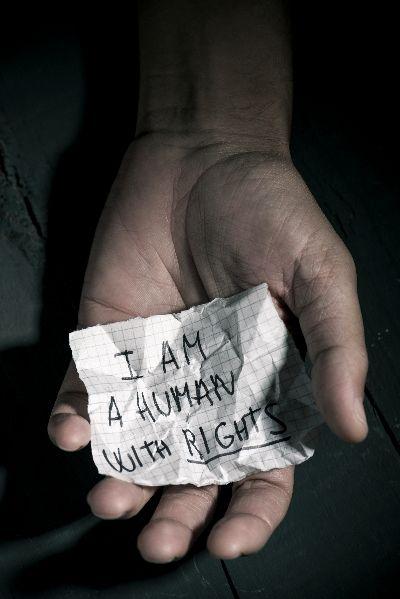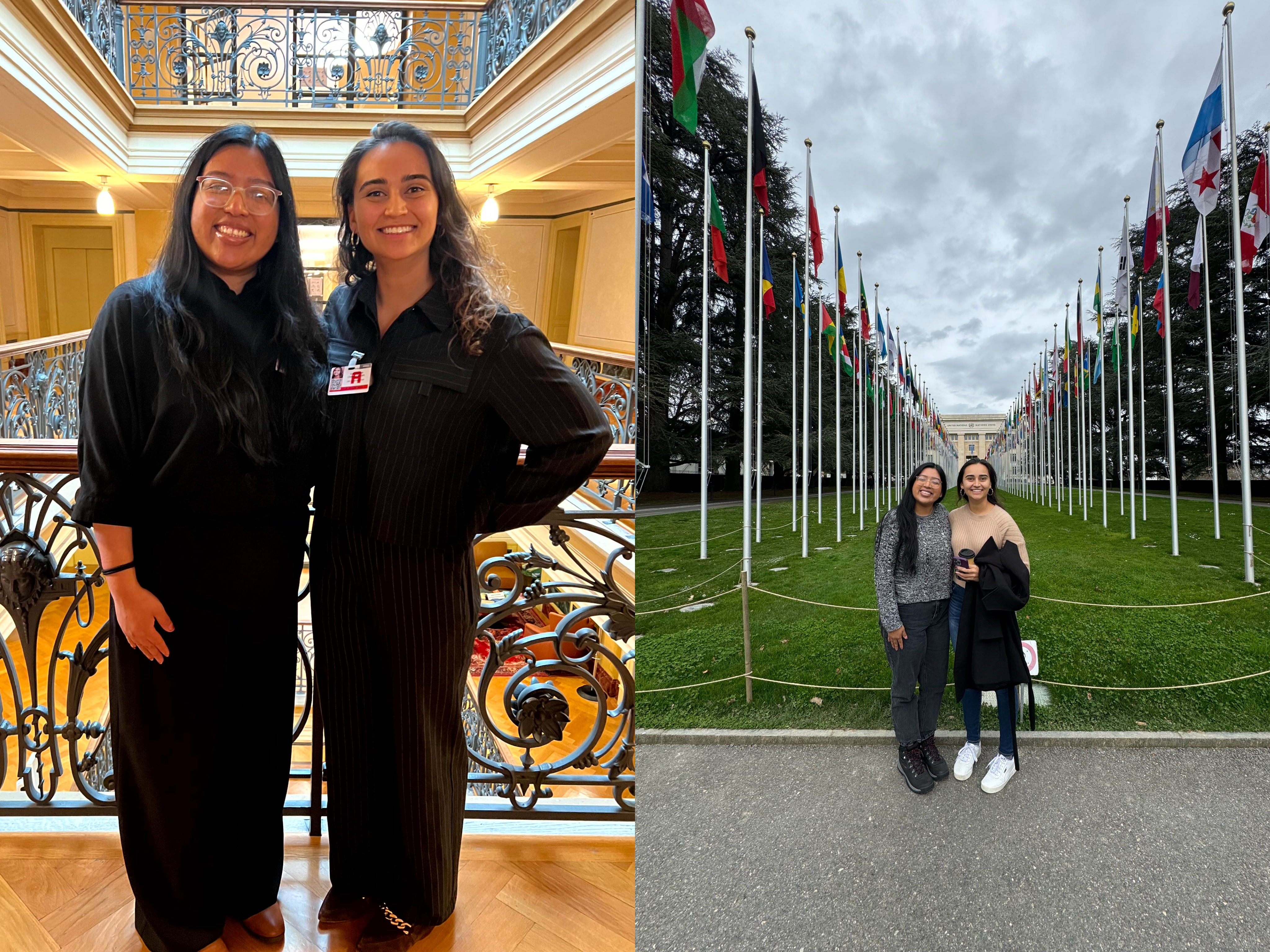
Rooted in LMU’s tradition of social justice, academic freedom, personal integrity and professional ethics, the mission of the International Human Rights Center (IHRC) is to achieve universal respect, protection and fulfillment of human rights for everyone.
WHO
Director
The IHCR was founded in 2012 by Professor Cesare P.R. Romano. Professor Romano is an internationally renowned expert of the law and procedure of international adjudicative bodies and a human rights scholar, with an extensive publication and practice record. You can find Professor Romano’s profile and curriculum on the school’s website, Wikipedia and his own personal website.
Some of the latest relevant publications of Prof. Romano are:
- Romano C./Boggio, A., The Human Right to Science: History, Development and Normative Content, Oxford University Press, 900 pp. circa, forthcoming 2024.
- Romano, C., “Litigating the Right to Science before the CESCR: The View from the Trenches”, in Sebastian Porsdam Mann, Maximilian Martin Schmid, Peter Vilmos Treit, and Helle Porsdam (eds.), Scientific Freedom: A Guide to the Right to Science, Rowman and Littlefield, 2024, pp. 121-128.
- Boggio A./Romano C./Almqvist J. (eds.), Human Germline Genome Modification and the Right to Science: A Comparative Study of National Laws and Policies, Cambridge University Press, 2019 (ISBN: 9781108499873).
- Romano, C., “The Origins of the Right to Science: The American Declaration on the Rights and Duties of Man”, in Porsdam, H, and Porsdam Mann, S, (eds.), The Right to Science: Then and Now Cambridge University Press, 2022, pp. 33-53.
- Romano C., A. Boggio, “The Right to Benefit from Progress in Science and Technology”, Max Planck Encyclopedia of Comparative Constitutional Law (MPECCoL), 2021
- Romano C., Alter K., Shany Y. (eds.), The Oxford University Press Handbook of International Adjudication, Oxford University Press, 2014 (ISBN: 978019966068-1).
Students
.png)
During academic year 2024-2025, the following students worked at the IHRC:
| Alec | Mayes | JD 2026 |
| David | Randall | JD 2026 |
| Stav | Tsur | JD 2026 |
| Ninveh | Mansour | JD 2026 |
| Madeline | Prokop | JD 2026 |
| Abby | Martin | JD 2026 |
| Fransheska | Campanioni-Daroch | JD 2026 |
| Sierra | Erdem | JD 2026 |
| Morgan | Garnhart | JD 2026 |
| Chandra | Ingram | JD 2026 |
WHAT
The IHRC engages both in advocacy and litigation before global and regional international human rights bodies. Students participate in the activities of the IHRC by enrolling in its practicum.
Litigation
The IHRC uses strategically international and regional human rights adjudicative bodies to advance international human rights law. It provides victims of human rights violations and the legal organizations representing them exceptional pro bono legal expertise. It gives students of the law school a unique practical experience to gain critical knowledge and skills for effective and successful legal advocacy on behalf of victims of human rights abuses.
In less than a decade, the IHRC has participated in the litigation of about two dozen cases before the Inter-American Commission of Human Rights and treaty bodies of the United Nations (e.g., Human Rights Committee; Committee on Economic, Social and Cultural Rights; Committee on the Elimination of Discrimination against Women; Committee on the Rights of the Child). Many of these led to landmark decisions on issues ranging from advanced topics, such as scientific research or the right to organize and participate in referenda, to core human rights issues, such as rights of refugees and death penalty.
Recently, the IHRC submitted two new cases to UN human rights treaty bodies.
The first one was submitted in the fall of 2022 to the Committee on the Rights of Persons with Disability (CRC) against the Principality of Monaco, where World Athletics (WA) is headquartered, on behalf of Blake Leeper, a U.S. Paralympic athlete, challenging WA’s decision to exclude him from the Olympic games.
The second one was submitted in December 2023 to the Human Rights Committee against Italy challenging a decision of the Italian Constitutional Court to prevent a referendum to legalize euthanasia in Italy.
The IHRC continues litigating 18 more cases, involving Turkey, Italy, the United States, and Jamaica, and works towards ensuring implementation of cases won against Ecuador, the United States, and Italy.
Advocacy
The IHRC is a frequent participant in the process of review of States’ compliance with international human rights obligations. Over the years, students working at the IHRC have prepared “parallel reports” to State official reports on issues ranging from the right to benefit from progress in science and technology, academic freedom, right to culture and freedom of religion, to prohibition of torture, cruel, inhuman and degrading treatment, excessive use of force by police, death penalty, prisoners’ rights.
Three recent parallel reports were prepared to assist the Committee on Economic, Social, and Cultural Rights in the formulation of the List of Issues during its Pre-Sessional Working Group. The first one, was prepared with Woman and Law in Southern Africa Research and Education Trust, Young Women's Consortium, and Nyale Institute. The report focused on access to abortion and post-abortion care in Malawi, which come under the purview of the Covenant (Articles 3, 10, 12, and 15). The second reports, jointly prepared by the IHRC, Science for Democracy, and Desert Flower Africa and focused on eliminating female genital mutilation in Sierra Leone. The third report, jointly prepared by the IHRC, Science for Democracy, and Aahung, focused on the protection and expansion of abortion rights in Pakistan.
The IHRC students presented orally all of these reports to the Committee during in-person hearings in 2023 and 2024.
Another example of work done to advocate for the rights of particularly vulnerable groups is the amicus brief to the Inter-American Court of Human Rights on the impact of climate change on the human rights of women in the Caribbean region. This brief highlighted the need for the court to use a gender-sensitive lens when considering what obligations States Parties have to combat climate change as it impacts human rights.
The Inter-American Court of Human Rights Project
The Inter-American Court of Human Rights Project ("IACHR Project") is a special project of the Loyola of Los Angeles International and Comparative Law Review. It seeks to increase access to decisions rendered by the Inter-American Court of Human Rights in order to assist students, practitioners, and scholars in strengthening human rights law in the Americas. To this end, the IACHR Project produces and publishes detailed summaries of cases rendered by the Inter-American Court. Summaries include descriptions of cases’ facts, procedural history, merits, and states’ compliance with the Inter-American Court’s judgment. Summaries are published online in the Loyola of Los Angeles International and Comparative Law Review and the project’s database. Prof. Romano supervises the IACHR Project.
Students interested in joining the IACHR Project should join the International Law Review first and express interest in working on the project.
HOW
Students interested in joining the IHRC must enroll in the following courses:
- International Human Rights Practicum (LAW G-5003)
- International Protection of Human Rights (LAW G-4007)
These courses are also recommended:
- Introduction to International Law (either Prof. Romano’s course for 2L and up (LAW G-4060), or Prof Glazier’s course for 1Ls (LAW G-1010)
- International Sports Law (LAW G-4098)
